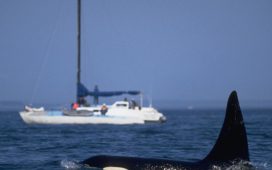Covid-19 levels among Britain’s deer are being monitored after high levels were detected among herds in North America.
US scientists are unearthing increasing evidence that the virus is able to spread and mutate freely among the species.
One study in Canada has even found what may be the first case of the virus jumping from a deer to a human.
Separate investigations have shown the virus is able to spread among white-tailed deers in the US, with up to 40% of animals tested in one such trial turning out to be positive.
Genomic sequencing has confirmed that, not only do new variants spread to the species as they explode in human populations, they continue to evolve among their new hosts.
According to a report in Nature, in 30 of the states where the animal has been tested for Covid-19, 24 have revealed some level of infection.
There’s no evidence Covid-19 is circulating in British deer but they are one of a number of species which are being monitored closely.
A task force set up last year by the Animal and Plant Health Agency is regularly checking for infections among several animal populations, including foxes, mink, badgers and bats, as well as deer.
Covid-19 cases in European deer have not been identified through monitoring but experts concede it wouldn’t be surprising if it did turn up given high rates among humans.
There are an estimated two million wild deer roaming round the British countryside, the highest levels in 1,000 years.
Early findings from a study of deer around Ontario, Canada, published in February found a ‘highly divergent’ lineage of the virus in circulation.
The strain had 76 mutations and genomic sequencing revealed an instance where it may have passed to a human, the first case of its kind.
SARS-Cov-2 – which causes Covid-19 in humans – doesn’t appear to make deer particularly unwell but scientists are concerned the species could become a ‘reservoir’ for the virus.
With some experts convinced Omicron spent time mutating in an animal host – possibly mice, according to a recent study – before being introduced to the human population, knowing where else it is spreading in nature is vital for keeping tabs on future infection risks.
Scientists are puzzled as to why white-tailed deer seem to be particularly susceptible.
It is a native to North America and found as far south as Bolivia but is not one of six species found in Britain, though it has been introduced to some European countries.
Biological differences between different types of deer don’t seem to explain the high transmission rates so a number of other environmental factors are being monitored.
Human-to-deer contact in parts of the US where the animals are comfortable enough to be petted or fed by humans is one possibility.
Infected hunters contaminating bait is another, as is deer sniffing around in food and coming into contact with discarded masks.
While human-to-deer contact is low in Britain, there is a risk the species would spread it to other animals, including farmed livestock, if it began to spread.
A Department for Environment, Food and Rural Affairs spokesperson told Metro.co.uk: ‘There is no evidence of SARS-CoV-2 circulating in our deer populations but we continue to monitor the situation closely, working together with academic partners.
‘The Human Animal Infections and Risk Surveillance group is undertaking a risk assessment on the potential contacts between deer and humans.’
Get in touch with our news team by emailing us at webnews@metro.co.uk.
For more stories like this, check our news page.















